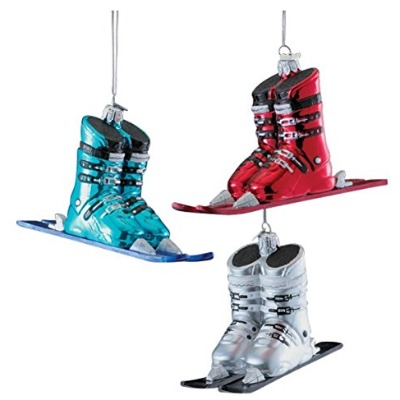Mastercard Backed Research Indicates Covid-19 Set To Accelerate Technology Innovation In Winter Sports

A new independent Delphi study of 53 winter sports experts*, entitled ‘The Impact of Technology on The Future of Winter Sports, in times of COVID’, commissioned by Mastercard, and led by Prof. Dr. Sascha L. Schmidt from WHU Centre for Sports and management has found that COVID-19 is set to accelerate the winter sports industry into a technological revolution by 2025.
Data has highlighted that globally, digitalisation has been catapulted forwards with 5-years’ worth of adoption happening within an eight-week period. This is being reflected within the winter sports industry, as experts predict that COVID-19 will accelerate digital growth.
The change in tactics for the industry is surprising as historically, technology and skiing have had a tumultuous relationship as people look to the slopes for a ‘closer to nature’ experience. By 2025, however, experts predict that the pandemic will have a major impact on three key areas of technology; training, preparation and recovery decisions for athletes (54%), general convenience for skiers including holidaymakers (56%) and optimisation of ski lift technology to minimize the spread of viruses (41%)
The report featuring insights and projections from winter sports experts from 15 countries across Europe, is the second future trends study that Mastercard has conducted in this field. It uncovers the challenges of COVID-19 and the opportunity for long term change the pandemic has provided, to improve the winter sports experience in the future.
It further uncovers challenges of COVID-19 and the opportunity for long term change the pandemic has provided, to improve the winter sports experience in the future. Over half of experts (56%) said changes caused by the pandemic will alter the industry in the long-term, despite the initial short term challenges.
Jeanette Liendo, Senior Vice President Marketing and Communications at Mastercard said: “This is the second study we have conducted on the European snow sports industry and, whilst 2020 has been unprecedented due to COVID-19, technological innovation has even further accelerated. Looking at the season ahead, the industry will continue to recover by adopting new technologies at pace.”
The winter sports industry has seen a major shift in operations which has forced many resorts to reassess how the slopes function, with 73% of experts predicating even further increases in contactless technology leading to seamless contact free experiences by 2025, including in payments, food orders, ski hiring and hotel check ins, compared to just 62% last year. Whilst the industry is beginning to bounce back, 49% of industry experts predict that pre-COVID levels, in general consumer skiing and live attendance, won’t return until 2023, a similar outlook for in person spectator winter sports events.
It’s not just the technology surrounding the smooth experience on slopes that is getting upgrades. Equipment producers have also had an extended period of thought through COVID-19, with many using the time to research and develop new equipment. By 2025, advanced materials within the winter sports industry are predicted to be one of the biggest changes to equipment on the slopes. This includes everything from smart protection with GPS trackers and measuring skiers biometric data, to renewed insulation materials for warmer yet lighter ski apparel. However, the biggest advancement will be the fan experience, such as digital streaming of events similar to the Hahnenkamm downhill races, with 73% of experts expecting a major shift by 2025 with fans being able to see detailed performances on athletes as they race.
Helmut Holzer, Director Anticipation & Advanced Research, Atomic Austria GmbH, commented “We still see potential in the area of integrated measuring systems directly attached to the equipment, especially for professional athletes. Feedback from athletes such as "it's shaky here or it' s unstable there" could thus be verified. Sometimes it is difficult to put the behaviour of the equipment into words, which is why we hope to gain insights from the data from integrated measuring systems. In the amateur sector, it's all about individualisation. Finding the right product for each individual athlete is a challenge, for example, different performance levels for the same product. Last but not least, sustainability will become even more important. Climate-friendly materials will increase - on the one hand to meet the demand from consumers, on the other hand to comply with regulatory requirements, e.g., from the EU.”
Chemmy Alcott, Gold Medallist World Cup Alpine Ski Racer, said “The past year has been so strange for everyone with businesses and sport being disrupted across the world. In a harsh reality, the pandemic has affected everyone in the snow sports industry, not just the skiers or the resort owners. Ski resorts are communities in their own right with local businesses and people depending solely on the resorts to live. I fully expect the way resorts and the slopes are run will fundamentally change due to COVID-19 and that’s a good thing, especially if we can build the popularity of skiing through virtual sports and create new exciting events everyone can be a part of. I’m looking forward to getting back on the slopes and I’m sure the rest of the industry is too. Whether it’s real life or virtually!”
Graham Bell, Five Time Winter Olympian Ski Racer and Hahnenkamm competitor said “Skiing has always been a pure and wild sport that allows you to disconnect from the world, so technology hasn’t always had the biggest impact. It’s exciting to see what other sports did during the pandemic to keep their fans watching and taking part. The idea of a virtual ski world championship or fans racing against their idols is amazing and will give the sport a massive boost. I hope the outlook for the industry comes true and enables winter sports to bounce back and open up to more people from all around the world.”
Another area of major technical advancement that experts predict to see by 2025, comes in the form of eSports. Virtual sports exploded on to the scene in 2020 as in-person events were cancelled or postponed due to COVID-19. Winter sports aren’t known for their virtual presence, other than in cult games such as SSX Tricky, however 37% of experts predict that by 2025 eSports will have opened up the virtual slopes for people across the globe, including where skiing isn’t naturally possible. As well as geographic acceleration in winter sports, 43% of experts predict simulations will have a significant impact on overall accessibility with more people who have a disability being able to experience the sport virtually.














